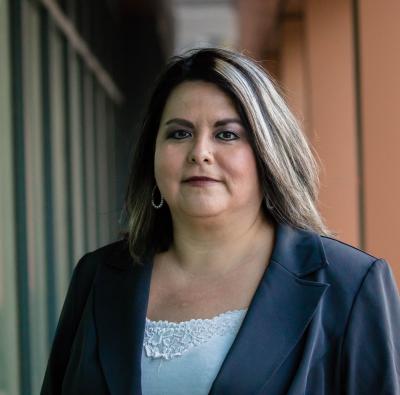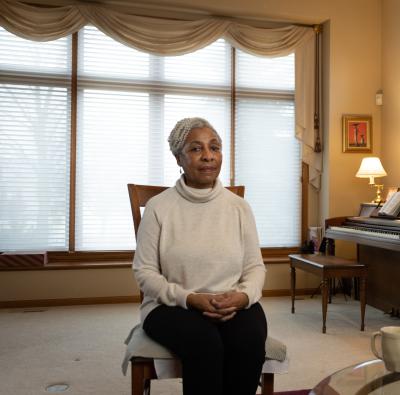The bipartisan House Select Committee investigating the January 6th attack on our country issued a comprehensive report after a series of public hearings, conducting more than 1,000 interviews and reviewing hundreds of thousands of documents.
The committee’s report contains detailed factual findings from its investigation, as well as a series of...
CLC and 13 partners have sent a letter to the incoming leaders of the House of Representatives urging the reauthorization and strengthening of the U.S. Office of Congressional Ethics (OCE).
OCE is the only independent ethics investigatory body in Congress and is subject to reauthorization through the House Rules at the beginning of each new...
One could sum up the 2022 election cycle in two words: democracy won. In the absence of federal voting rights reform, states have needed to step up and become the new vanguard for protecting the freedom to vote. Across the country, Americans voted to strengthen our democracy through ballot initiatives.
In Michigan, voters passed Proposal 2 by a...
After failing to act on a 2016 complaint brought by Campaign Legal Center (CLC), the Federal Election Commission (FEC) has been directed by the U.S. District Court of the District of Columbia to take action regarding a massive coordination scheme between the 2016 presidential campaign of Hillary Clinton and a super PAC called Correct the Record.
...
Voters have a right to know who is spending money to influence their vote and affect the outcome of elections, which is why federal campaign finance laws require disclaimers on election ads.
Disclaimers — the “paid for by” statement written or spoken at the end of most political ads — are one of the most important transparency-promoting tools for...
The public’s trust in state and local government remains higher than public trust in the federal government. One of the reasons for the difference may be that state and local ethics commissions nationwide are relying on innovation to solve corruption problems and foster an ethical culture before scandal erupts.
CLC’s new report, Top Ten...
Campaign Legal Center (CLC) has filed a complaint with the U.S. Senate Select Committee on Ethics (Ethics Committee) concerning Senator Ted Cruz improperly accepting a gift from iHeartMedia (iHeart) in violation of Senate rules and the Honest Leadership and Open Government Act (HLOGA).
The complaint stems from Senator Cruz and iHeart entering...
The U.S. Supreme Court, one of our nation's most powerful institutions, has zero infrastructure in place to investigate ethics violations - and that's a problem.
For example, if there are credible allegations that a Supreme Court Justice leaked the results of a ruling, there is no procedure for investigations or any rule prohibiting the leak.
...Arizona voters are ushering in a new era of campaign finance transparency in the Grand Canyon State. Specifically, an overwhelming majority of Arizona voters passed Proposition 211 on Election Day 2022, also known as the “Voters’ Right to Know Act.”
Prop 211 will shine light on the original sources of secret campaign spending in Arizona and...
Whether or not you’re a fan of Speaker Nancy Pelosi, one remarkable fact of her political career is that she is one of the only speakers in over 50 years to lead a party and not be ensnared by ethics scandals.
Representative Kevin McCarthy, leader of the House Republican caucus, has promised to strengthen ethics if he becomes speaker, but whether...
“Democracy Decoded,” a podcast by Campaign Legal Center (CLC) returns today with a season focused on the freedom to vote. In our highly polarized political environment, this fundamental freedom is under attack by bad actors seeking to gain an electoral advantage. In its second season, Democracy Decoded explains these threats and how to respond with...
Campaign Legal Center (CLC) filed complaints with four Inspectors General and the Office of Government Ethics (OGE) concerning a pattern of senior agency leaders trading stocks connected to their official duties.
The complaints stem from a report by The Wall Street Journal that uncovered senior officials at the Federal Trade Commission (FTC)...
When Congress passed the Bipartisan Campaign Reform Act of 2002 (“BCRA”), the new law closed a loophole previously used to inject “soft money” — money that isn’t subject to federal contribution limits, source prohibitions, and reporting requirements — into federal elections. That’s essential to maintain transparency and combat corruption in our...
Since leaving office more than two years ago, Donald Trump has continued to tour the country, make speeches, and raise staggering amounts of money from his political supporters. Most of the former president’s fundraising has been through his leadership PAC, Save America, and some of the ways he has spent that money raise serious concerns under...
Foreign nationals have long sought to influence our elections to advance their interests over those of the American people. Since its founding, our nation’s leaders have cautioned against “foreign Interference, Intrigue, and Influence” in our elections and in our government. That warning should ring with even greater force today.
During the...
Oakland voters have taken a groundbreaking step to overhaul the way their city runs its elections and ensure a more responsive and accountable government. By passing Measure W, Oakland became the second city in the nation to enact a voucher-based public financing program that directly empowers its residents to engage in the political process.
This...
Campaign Legal Center (CLC), joined by Democracy 21, has sued the Federal Election Commission (FEC) for its much-belated dismissal of two complaints CLC and Democracy 21 filed seven years ago in 2015 against former Florida Governor John Ellis “Jeb” Bush and the super PAC he established, Right to Rise Super PAC, resurrecting a matter the FEC clearly...
Every election cycle, voters see, hear, and scroll past countless political ads that support or attack candidates vying for public office. Indeed, candidates generally spend a major share of their campaign funds on such ads.
But in recent years, political ads have increasingly been financed by outside groups like super PACs, which spend hundreds...
The U.S. Supreme Court will hear oral arguments in Moore v. Harper this December, where the court will consider a fringe legal theory that could give state legislatures nearly unchecked power to set the rules for federal elections – with potentially disastrous consequences for election law, the freedom to vote and the health of our democracy.
Moor...
To limit the influence of money in politics and prevent corruption and its appearance, federal campaign finance laws have long maintained contribution limits for candidates, political parties, and PACs. Even as our elections are drowning in outside, “independent” spending by super PACs and secret spending 501(c) groups, the amount that anyone can...
Polling shows that the public overwhelmingly disapproves of members of Congress trading stocks. This disapproval makes sense considering the lack of enforcement of current laws governing stock trading. But the lax enforcement of disclosure requirements for stock trades is just one example of the larger, systemic problem of weak ethics committees in...

